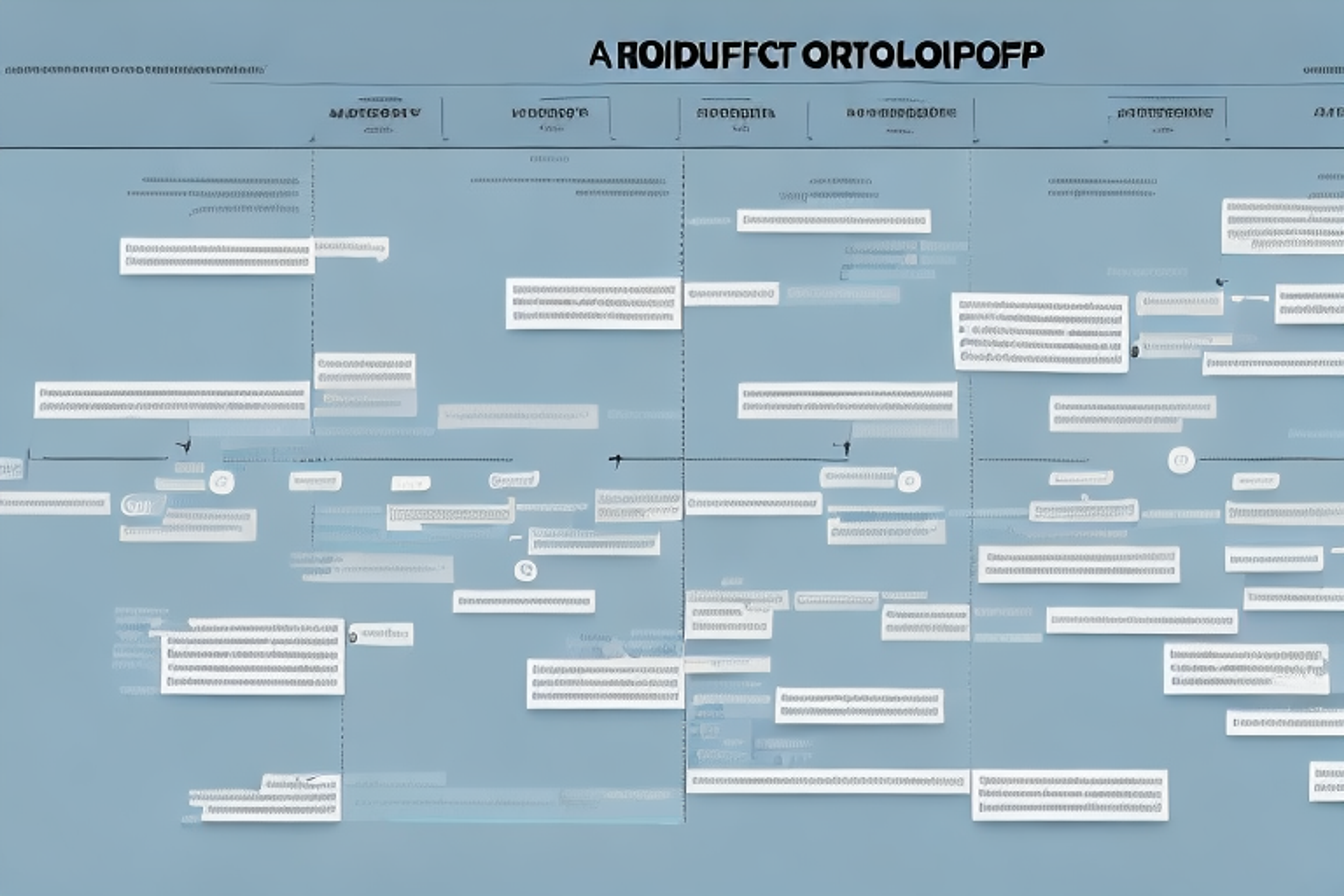The Product Book: How to Become a Great Product Manager by Leading Experts
Discover the ultimate guide to becoming a successful product manager with "The Product Book".
Posted May 15, 2023

Table of Contents
Are you interested in becoming a great product manager? Do you want to learn the essential skills and techniques needed to excel in this role? If so, you're in luck! The Product Book: How to Become a Great Product Manager by Leading Experts is a comprehensive guide that covers everything you need to know about product management.
Introduction to Product Management
Product management is a crucial role in any organization that produces goods or services. As a product manager, you are responsible for the success of your product(s). This requires a deep understanding of your product, your target market, and your competition. Product management involves a wide range of activities, including market research, product development, and team management. The aim of product management is to create a product that meets the needs of your customers and generates profits for your organization.
Effective product management also involves continuous improvement and adaptation to changing market conditions. This means that product managers must stay up-to-date with industry trends, customer feedback, and technological advancements. They must also be able to make data-driven decisions and prioritize tasks based on the needs of the business. Successful product managers are able to balance the needs of their customers, their team, and their organization to create a product that is both profitable and valuable.
Understanding the Role of a Product Manager
A product manager is responsible for the entire lifecycle of a product. This includes identifying customer needs, conducting market research, developing and launching the product, and managing the product after launch. A product manager must also work closely with cross-functional teams, including development, marketing, and sales, to ensure that the product is successful. The product manager serves as the bridge between the development team and the rest of the organization, ensuring that everyone understands the product and its goals.
One of the key responsibilities of a product manager is to prioritize features and enhancements for the product. This involves analyzing customer feedback, market trends, and competitor offerings to determine what features will provide the most value to customers and differentiate the product from competitors. The product manager must also consider technical feasibility, development resources, and timelines when prioritizing features.
In addition to managing the product, a product manager must also be a strong communicator and collaborator. They must be able to effectively communicate the product vision and strategy to stakeholders across the organization, including executives, developers, and sales teams. They must also be able to collaborate with these stakeholders to ensure that everyone is aligned on the product goals and priorities.
Essential Skills for Successful Product Managers
Successful product managers possess a range of skills and qualities. These include strong communication skills, both written and verbal; the ability to analyze data and make data-driven decisions; strong leadership skills; the ability to work well in teams; strategic thinking; and a deep understanding of their product, market, and competition. A product manager must also be able to adapt to change and stay up-to-date with the latest trends in their industry.
Another essential skill for successful product managers is the ability to prioritize tasks and manage their time effectively. Product managers are often responsible for multiple projects and tasks, and they must be able to prioritize their workload to ensure that they meet deadlines and deliver high-quality products. They must also be able to delegate tasks to their team members and provide guidance and support when needed.
In addition, successful product managers must have strong problem-solving skills. They must be able to identify problems and find creative solutions to overcome them. This requires a combination of analytical thinking, creativity, and the ability to think outside the box. Product managers must also be able to anticipate potential problems and develop contingency plans to mitigate risks and ensure that their products are successful.
The Product Manager's Toolkit: Tools and Techniques for Effective Management
A product manager has access to a wide range of tools and techniques to help them manage their product effectively. These include agile methodologies, which prioritize flexibility and adaptability; design thinking, which emphasizes understanding and empathy with the customer; lean methodologies, which focus on minimizing waste and maximizing efficiency; and many others. It's important for product managers to have a thorough understanding of these tools and techniques so that they can use them to achieve their goals.
One important tool for product managers is market research. This involves gathering data on customer needs, preferences, and behaviors, as well as analyzing industry trends and competitor activity. By using market research, product managers can make informed decisions about product development, pricing, and marketing strategies.
Another key technique for effective product management is stakeholder management. This involves identifying and engaging with all the individuals and groups who have a stake in the product's success, including customers, investors, employees, and partners. By building strong relationships with stakeholders and keeping them informed and involved throughout the product development process, product managers can ensure that everyone is aligned and working towards the same goals.
Defining and Communicating the Vision of a Product
One of the most important tasks of a product manager is to define and communicate the vision of their product. This involves creating a clear, concise statement that describes what the product is, what it does, and who it is for. This vision statement serves as a guiding principle for the product manager and their team throughout the product development lifecycle. It also helps to ensure that everyone involved in the project is on the same page and working towards the same goals.
Another important aspect of defining the vision of a product is to identify the unique selling proposition (USP) of the product. This is the feature or benefit that sets the product apart from its competitors and makes it attractive to customers. The USP should be included in the vision statement and communicated clearly to the team and stakeholders.
Effective communication of the product vision is also crucial for securing buy-in from stakeholders and investors. The product manager should be able to articulate the vision in a way that is compelling and inspires confidence in the product's potential for success. This may involve creating visual aids, such as diagrams or prototypes, to help convey the vision and demonstrate the product's value proposition.
Market Research and Analysis: Identifying Customer Needs and Trends
Market research is a critical component of product management. It involves gathering and analyzing data about your target market, including their demographics, needs, preferences, and behaviors. Market research helps product managers to understand their customers better and identify trends in the market. This information can then be used to guide product development and marketing strategies.
Product Development Lifecycle: From Concept to Launch
The product development lifecycle involves several stages, including concept development, product design, testing, and launch. A product manager is responsible for ensuring that each stage is completed successfully and that the final product meets the needs of the target market. This requires strong project management skills, the ability to work well with cross-functional teams, and a deep understanding of the product and its goals.
Building and Managing Cross-functional Teams
Cross-functional teams are a critical component of product management. These teams bring together individuals from various departments, including development, marketing, and sales, to collaborate on a common goal. Building and managing these teams requires strong leadership skills and the ability to communicate effectively with individuals from different backgrounds and with different skill sets.
Agile Product Management: Benefits and Best Practices
Agile product management is a methodology that emphasizes flexibility, adaptability, and collaboration. This approach can help product managers to respond quickly to changes in the market, prioritize customer needs, and deliver high-quality products more efficiently. Best practices for agile product management include creating small, cross-functional teams, breaking down projects into smaller, manageable tasks, and regularly testing and iterating on the product.
Measuring Success: Metrics and KPIs for Product Managers
Measuring the success of a product is essential for product managers. It involves setting goals and identifying key performance indicators (KPIs) that can be used to track progress towards those goals. Metrics such as revenue, customer satisfaction, and retention rates can help product managers to determine whether their product is successful and identify areas for improvement.
Managing Stakeholder Expectations: Communication Strategies for Successful Products
Stakeholder management is a critical task for product managers. This involves communicating with stakeholders, such as investors, customers, and internal team members, to ensure that everyone is on board with the product and its goals. Effective communication strategies can help product managers to manage stakeholder expectations, build trust, and ensure that the product is successful.
Dealing with Challenges: Risks, Obstacles, and Failures in Product Management
Product management is not without its challenges. Risks, obstacles, and failures are all normal parts of the product development process. It's important for product managers to have a plan in place for dealing with these challenges and to learn from their mistakes. Embracing failure as a learning opportunity can help product managers to develop better products and become better leaders.
Career Pathways for Product Managers: Opportunities, Salaries, and Growth Potential
Product management is a growing field with many opportunities for career growth. Product managers can work in a variety of industries, including technology, healthcare, and consumer goods. Salaries for product managers vary depending on the industry and location, but typically range from $80,000 to $150,000 per year. There are also opportunities for product managers to become senior-level executives, entrepreneurs, or consultants.
As you can see, becoming a great product manager requires a wide range of skills and abilities. However, with the right training and experience, anyone can excel in this role. The Product Book: How to Become a Great Product Manager by Leading Experts is an excellent resource for anyone who wants to learn more about product management and become a successful product manager.



















